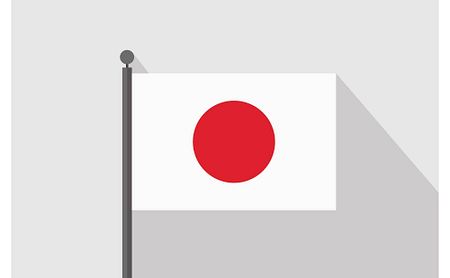Japan Approves Uplizna for Preventing NMOSD Relapses
Written by |

Note: This story was updated March 29, 2021, to note that Uplizna is indicated for all NMOSD patients, regardless of the presence of aquaporin-4 water channel autoantibodies.
Uplizna (inebilizumab-cdon) has been approved in Japan for preventing relapses in people with neuromyelitis optica spectrum disorder (NMOSD), including those with neuromyelitis optica.
This decision from the Japanese Ministry of Health, Labour and Welfare covers all NMOSD adults, with or without aquaporin-4 water channel autoantibodies (AQP4-IgG). The treatment will be marketed by Mitsubishi Tanabe Pharma Corporation (MTPC) as a 100 mg intravenous (into the bloodstream) infusion twice a year.
“The Uplizna approval in Japan is a significant milestone for NMOSD patients, as it provides another treatment option for this devastating disease,” Tim Walbert, chairman, president and CEO of Horizon Therapeutics, Uplizna’s developer, said in a press release.
Horizon’s partner, MTPC, has the rights to develop and commercialize Uplizna throughout much of Asia, both for NMOSD and for future indications. MTPC’s license includes Japan, Thailand, South Korea, Indonesia, Vietnam, Malaysia, Philippines, Singapore, and Taiwan.
Uplizna is an antibody that targets B-cells. These cells, part of the immune system, produce antibodies that normally recognize foreign pathogens such as viruses. In the case of NMOSD, however, B-cells produce “autoantibodies” that zero in on the body’s own cells — in this case, nervous system support cells called glia.
The autoantibodies trigger an immune reaction upon binding to these supportive cells, damaging them and their surrounding nerve cells through the prolonged inflammation that ensues.
This nerve damage causes the symptoms of NMOSD, which include pain inside the eyes, leading to vision loss, burning and tingling sensations, involuntary muscle contractions, and more rarely, uncoordinated walking and slurred speech.
Uplizna is designed to reduce the risk of NMOSD attacks by binding to B-cells and eliminating them, thereby reducing autoantibody production.
It was tested in a Phase 2/3 clinical trial (NCT02200770) that completed late last year. Called N-MOmentum, the trial involved 230 adult patients with a history of at least one attack requiring medication one year prior to enrollment, or two attacks in the two years before screening.
Participants, most of whom had AQP4-IgG antibodies, were randomly assigned to receive either 300 mg of Uplizna (174 patients) or a placebo (56 patients) on days 1 and 15, and were followed for about 6.5 months. After this period, all patients had the option to enter an open-label extension part to continue receiving 300 mg of Uplizna every six months.
Results showed that Uplizna significantly delayed attack onset, with 12% of patients on this treatment experiencing an attack over the 6.5 months, compared with 39% of those on placebo. This represented a 73% reduction in the risk of relapse.
Also, most AQP4-IgG-positive participants receiving Uplizna (89%) were relapse-free after six months, compared with 58% of those receiving the placebo.
In the ongoing open-label extension study, 85% of patients still receiving Uplizna remained attack-free after one year of use. Additionally, expanded disability status scale scores, a standard measure of disability, improved among these participants after at least one year of treatment.
“We continue to aggressively execute on a global expansion strategy with our other on-market and investigational medicines with the goal of bringing important treatments to those impacted by rare, autoimmune and severe inflammatory diseases,” Walbert said.




